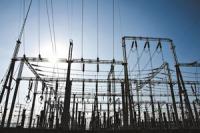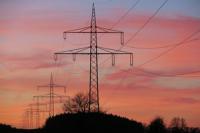-
Enhancing the Reliability, Resilience of the U.S. Power Grid
Oak Ridge National Laboratory researchers will lead two new projects and support seven more to enhance the reliability and resilience of the nation’s power grid as part of the U.S. Department of Energy’s 2019 Grid Modernization Lab Call. DOE announced funding of approximately $80 million over three years to fund 23 projects across the country.
-
-
New Clues Show How Russia’s Grid Hackers Aimed for Physical Destruction
For nearly three years, the December 2016 cyberattack on the Ukrainian power grid has presented a menacing puzzle. Two days before Christmas that year, Russian hackers planted a unique specimen of malware in the network of Ukraine’s national grid operator, Ukrenergo. Just before midnight, they used it to open every circuit breaker in a transmission station north of Kyiv. The result was one of the most dramatic attacks in Russia’s , an unprecedented, automated blackout across a broad swath of Ukraine’s capital. In an insidious twist in the Ukrenergo case, Russia’s hackers apparently intended to trigger that destruction not at the time of the blackout itself but when grid operators turned the power back on, using the utility’s own recovery efforts against them.
-
-
Boosting Energy Security: Lessons from Post-Hurricane Maria Puerto Rico
It took nearly a year for the government-run Puerto Rico Electric Power Authority (PREPA), which is the only power company in Puerto Rico, to restore electricity throughout the island. This was the biggest and longest power outage in U.S. history.As scientists suggest that weather will probably become more extreme and weather-related natural disasters are likely to intensify in the coming decades,we can learn some valuable lessons from what Puerto Rico has gone through in the wake of Hurricane Maria.
-
-
Risks Grow as Countries Share Electricity Across Borders
Increasing interconnection of electricity systems both within and between countries has much promise to help support clean energy power systems of the future. If the sun isn’t shining or wind isn’t blowing in one place, an electricity grid with high voltage transmission lines can move electricity to where it is needed. This shared infrastructure and increased trade can possibly serve as a basis for peace between neighbors in conflict, but it may also serve as a tool of coercion if the electricity can be cut off by one party.
-
-
Optimizing use of future wave electricity generators during disaster
When hurricanes strike, loss of electricity ranks as one of the top concerns for relief workers. Blackouts lasting a week or more can hamper recovery efforts, shutter hospitals, threaten public health and disrupt transportation. The months-long effort to restore power to Puerto Rico following the 2017 hurricane season has led to renewed interest in finding innovative ways to get affected power grids back online. Researchers look to develop a strategy for how floating devices that harness the energy of the oceans’ waves might be able to provide this much needed aid.
-
-
Vulnerable grid: Argentina's nationwide blackout
Blackouts which affect an entire country are incredibly rare – but one just hit Argentina on Sunday. Since April, an electricity transmission connection between two power plants in Colonia Elia and Nueva Campana has been out of service. Even with that connection not in service, Argentina’s electrical grid was supposed to withstand another connection being severed from the grid. But when a second connection went offline on Sunday, the entire national grid was put out of action.
-
-
Electricity grid cybersecurity will be expensive – who will pay, and how much?

Russia, China, North Korea and Iran are capable of hacking into the computers that control the U.S. electricity grid. Protecting the grid from hacking would cost tens of billions of dollars. The electricity customers will likely foot most of the bill.
-
-
Signals from distant space could help secure electric substations
Side channel signals and bolts of lightning from distant storms could one day help prevent hackers from sabotaging electric power substations and other critical infrastructure.
-
-
Predicting impacts of extreme events on grids
A new, free, open-source software reliably predicts how damage from hurricanes, ice storms, earthquakes, and other extreme events will restrict power delivery from utility grids. The Severe Contingency Solver for Electric Power Transmission is the only software available—commercially or open-source—that reliably supports analysis of extreme events that cause widespread damage.
-
-
AI automatically detects disturbances in power supply grids
The grid is changing as the big, centralized providers of the past are replaced by smaller, distributed suppliers. Keeping such complex networks running stable requires high-resolution sensor technology – AI provides a way to make accurate predictions and automatically detect any disturbances or anomalies in real time.
-
-
Modernize the energy grid software

The grid is an intricate, highly complex system. One that has gotten even more complex with the increasing use of renewable energy resources like wind and solar. At some point, something will go wrong. A line will get cut. A generator will fail. There might be a hurricane or a cyberattack. How do you quickly correct for that failure to avoid a cascading blackout?
-
-
Next-generation grid security tech
Researchers will demonstrate the effectiveness of metro-scale quantum key distribution (QKD) as a means of secure communication for the nation’s electricity suppliers. This initial milestone is part of the team’s three-year project focused on next-generation grid security.
-
-
Transformative grid technology
Avista and the Department of Energy’s Pacific Northwest National Laboratory announced they will enter an agreement to strengthen and expand their partnership at the frontiers of grid modernization. The scope of the new agreement includes collaboration on new battery and thermal storage technologies, and the development and testing of transactive building controls for increased grid reliability and resiliency.
-
-
How Russia hacked U.S. power grid
In an aptly titled investigative report — “America’s Electric Grid Has a Vulnerable Back Door—and Russia Walked Through It” — the Wall Street Journal has used “documents, computer records and interviews” to reconstruct exactly how Russian hackers accessed the U.S. electric grid in the spring of 2016, an attack that continued through 2017 and possibly 2018.
-
-
Friendly electromagnetic pulse improves survival for electronics
An electromagnetic pulse, or EMP, emitted by a nuclear weapon exploded high above the United States could disable the electronic circuits of many devices vital to military defense and modern living. These could include complicated weapon systems as well as phones, laptops, credit cards and car computers. Also, in trouble might be home appliances, gas station pumps and bank accounts. Military equipment – and some civilian equipment, too — are designed to be immune to various levels of EMP, and the validity of these designs has been tested and improved by a “friendly” EMP generator installed in a recently renovated facility at Sandia National Laboratories.
-
- All
- Regional
- Water
- Biometrics
- Borders/Immig
- Business
- Cybersecurity
- Detection
- Disasters
- Government
- Infrastructure
- International
- Public health
- Public Safety
- Communication interoperabillity
- Emergency services
- Emergency medical services
- Fire
- First response
- IEDs
- Law Enforcement
- Law Enforcement Technology
- Military technology
- Nonlethal weapons
- Nuclear weapons
- Personal protection equipment
- Police
- Notification /alert systems
- Situational awareness
- Weapons systems
- Sci-Tech
- Sector Reports
- Surveillance
- Transportation
Advertising & Marketing: advertise@newswirepubs.com
Editorial: editor@newswirepubs.com
General: info@newswirepubs.com
2010-2011 © News Wire Publications, LLC News Wire Publications, LLC
220 Old Country Road | Suite 200 | Mineola | New York | 11501
Permissions and Policies
Editorial: editor@newswirepubs.com
General: info@newswirepubs.com
2010-2011 © News Wire Publications, LLC News Wire Publications, LLC
220 Old Country Road | Suite 200 | Mineola | New York | 11501
Permissions and Policies
